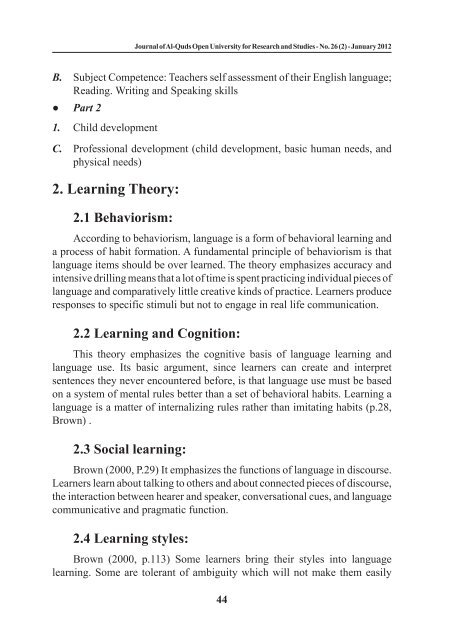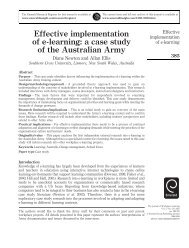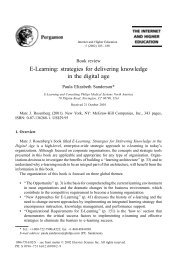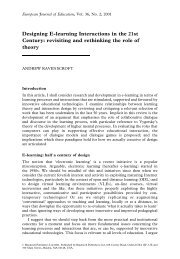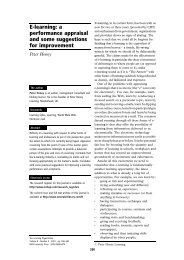Ùسخة pdf - جا٠عة اÙÙدس اÙÙ ÙتÙØØ©
Ùسخة pdf - جا٠عة اÙÙدس اÙÙ ÙتÙØØ©
Ùسخة pdf - جا٠عة اÙÙدس اÙÙ ÙتÙØØ©
Create successful ePaper yourself
Turn your PDF publications into a flip-book with our unique Google optimized e-Paper software.
Journal of Al-Quds Open University for Research and Studies - No. 26 (2) - January 2012<br />
B.<br />
●<br />
1.<br />
C.<br />
Subject Competence: Teachers self assessment of their English language;<br />
Reading. Writing and Speaking skills<br />
Part 2<br />
Child development<br />
Professional development (child development, basic human needs, and<br />
physical needs)<br />
2. Learning Theory:<br />
2.1 Behaviorism:<br />
According to behaviorism, language is a form of behavioral learning and<br />
a process of habit formation. A fundamental principle of behaviorism is that<br />
language items should be over learned. The theory emphasizes accuracy and<br />
intensive drilling means that a lot of time is spent practicing individual pieces of<br />
language and comparatively little creative kinds of practice. Learners produce<br />
responses to specific stimuli but not to engage in real life communication.<br />
2.2 Learning and Cognition:<br />
This theory emphasizes the cognitive basis of language learning and<br />
language use. Its basic argument, since learners can create and interpret<br />
sentences they never encountered before, is that language use must be based<br />
on a system of mental rules better than a set of behavioral habits. Learning a<br />
language is a matter of internalizing rules rather than imitating habits (p.28,<br />
Brown) .<br />
2.3 Social learning:<br />
Brown (2000, P.29) It emphasizes the functions of language in discourse.<br />
Learners learn about talking to others and about connected pieces of discourse,<br />
the interaction between hearer and speaker, conversational cues, and language<br />
communicative and pragmatic function.<br />
2.4 Learning styles:<br />
Brown (2000, p.113) Some learners bring their styles into language<br />
learning. Some are tolerant of ambiguity which will not make them easily<br />
44


